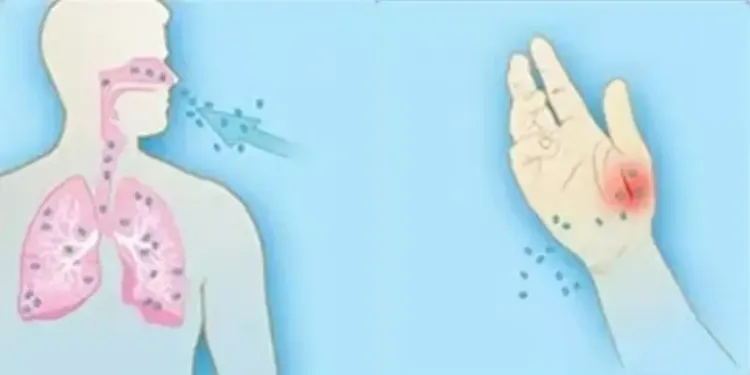Did Thailand Confirm an Anthrax Death in a 53-Year-Old After Eating Raw Meat?

Synopsis
Key Takeaways
- Anthrax is a serious bacterial infection.
- A recent case linked to raw meat consumption has resulted in a fatality.
- Authorities are monitoring and implementing control measures.
- Public awareness is crucial for preventing further cases.
- Farmers are advised to report unusual animal deaths.
New Delhi, May 2 (NationPress) Thai health authorities have confirmed the tragic passing of a 53-year-old man due to anthrax, a severe bacterial infection, following the consumption of raw meat.
Anthrax is an infectious disease caused by the bacterium Bacillus anthracis.
The Department of Disease Control (DDC) identified the first human fatality from the Don Tan district in Mukdahan province, as reported by The Nation Thailand.
The DDC attributed the man's death to the consumption and distribution of beef during a religious festival.
The victim, a construction worker with a history of diabetes, developed a lesion on his right hand on April 24 and was admitted to the hospital on April 27.
Sadly, he succumbed to his condition as it escalated, resulting in a blackened wound, swollen lymph nodes under his right armpit, fainting, and seizures, according to reports.
Authorities have indicated that there have been no unusual illnesses or deaths in animals from the region but have issued a public health alert, with officials actively monitoring to prevent the spread of anthrax.
Meanwhile, officials from the Department of Livestock Development (DLD) have collected samples—including dried meat, hides from pigs and cattle, samples from cutting boards, and cow feces—to further investigate the disease's presence within the country.
Control measures have been enacted, such as quarantining animals and administering penicillin antibiotics for 3-5 days; prohibiting cattle grazing in high-risk areas; decontaminating slaughter sites and drainage systems; monitoring soil in animal pens for contamination; and conducting health surveillance on animals in the Don Tan district.
While anthrax mainly affects livestock and wild animals, it can also be transmitted to humans through contact with infected animals or animal products, or through inhalation or ingestion of anthrax spores.
Health officials are urging farmers to remain vigilant for signs like sudden animal deaths and bleeding from the mouth, nose, or anus, and to seek immediate medical assistance. They have also strongly recommended that the public avoid consuming raw meat.










